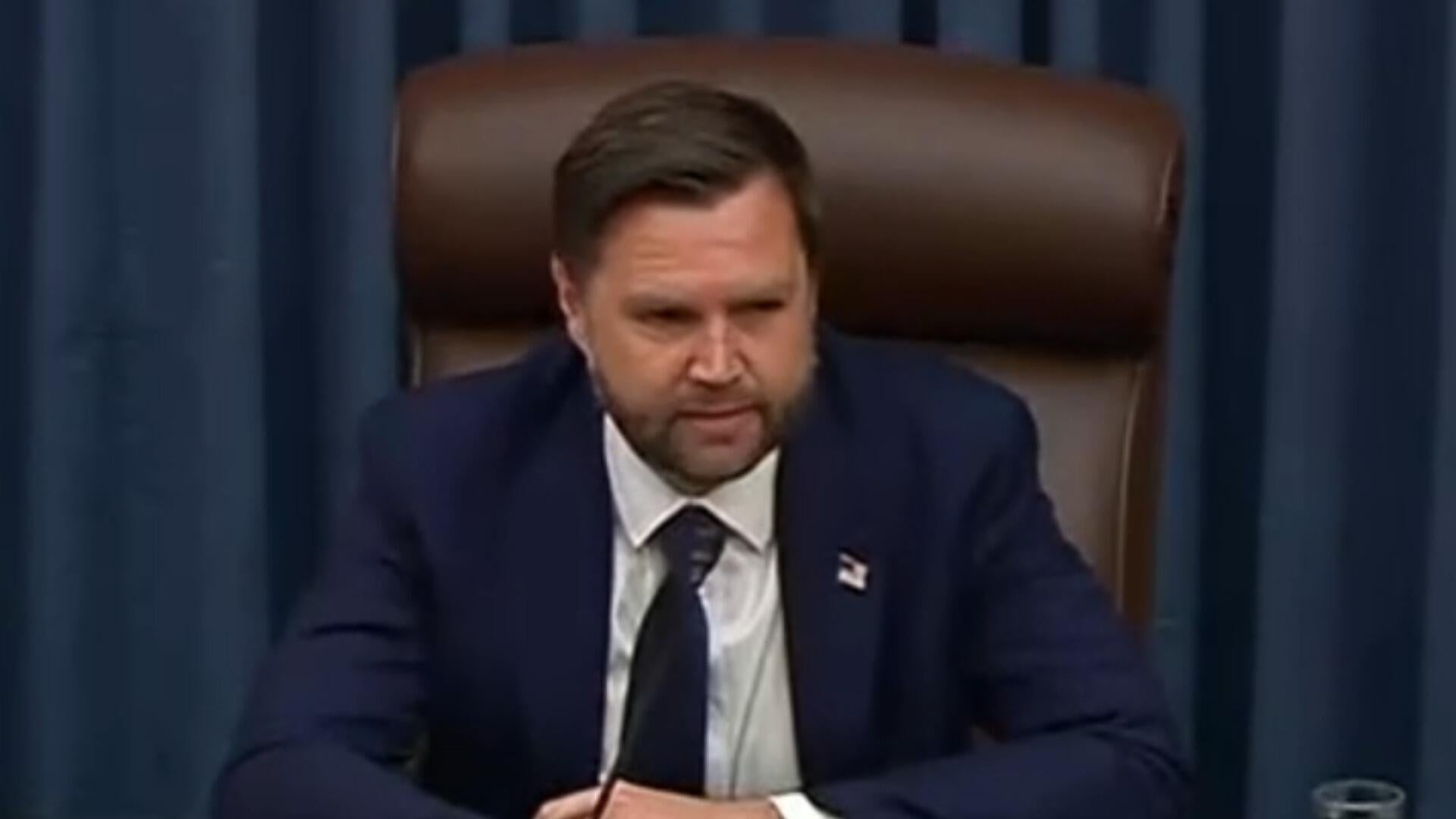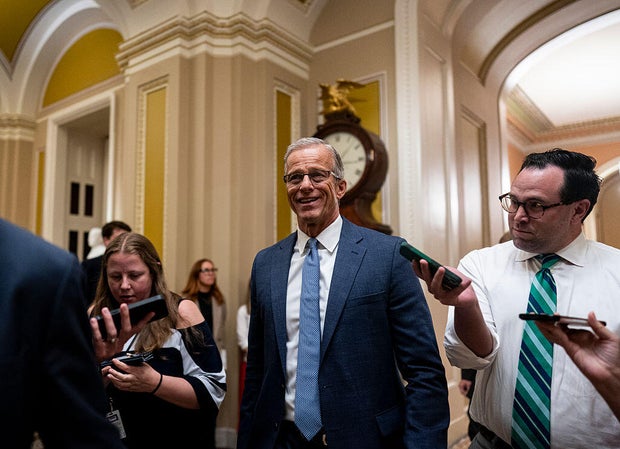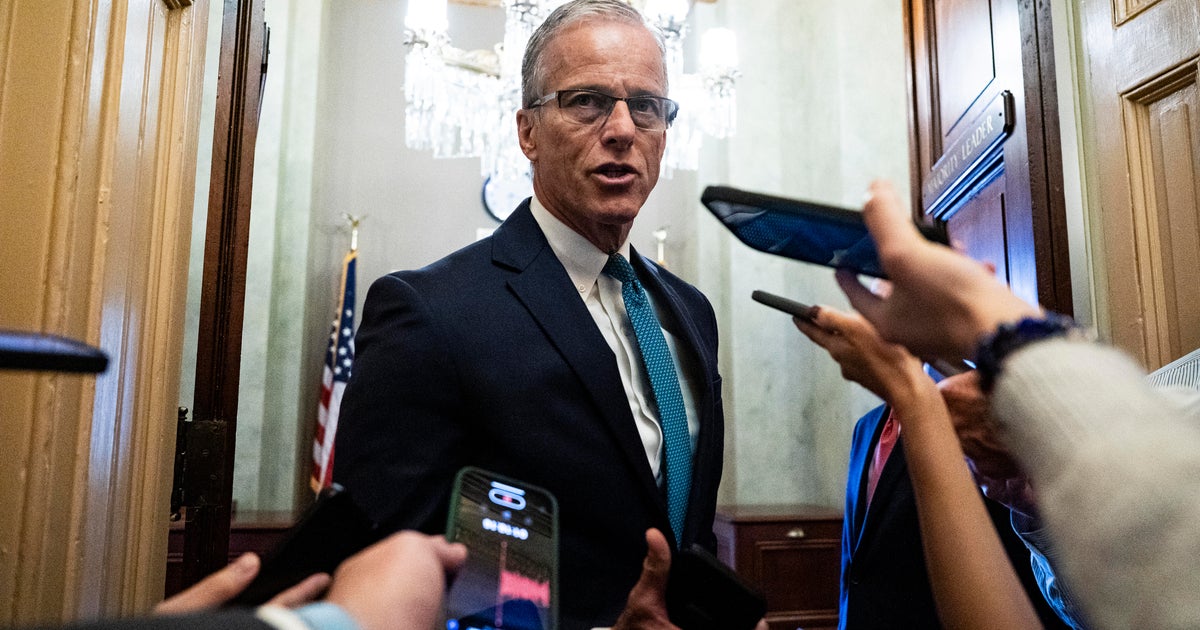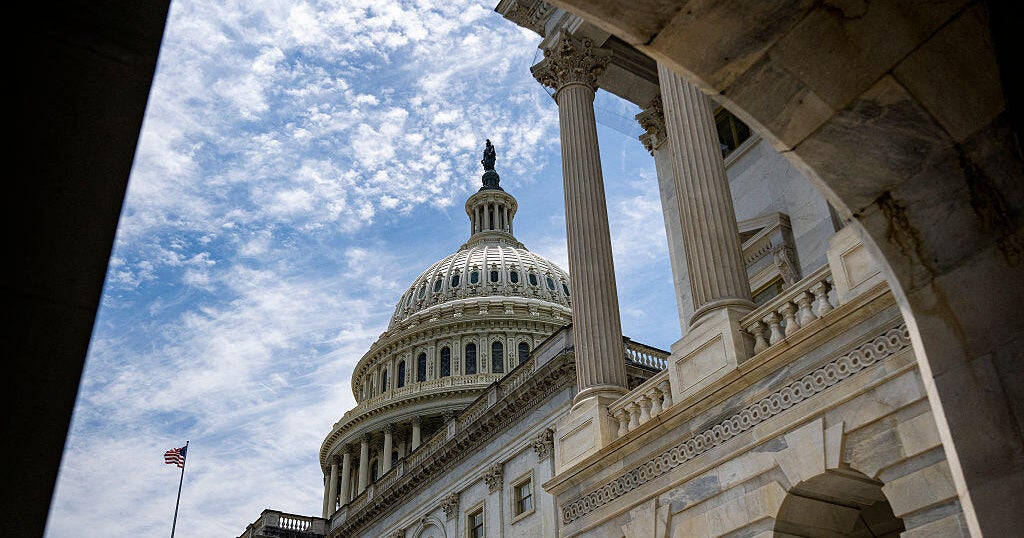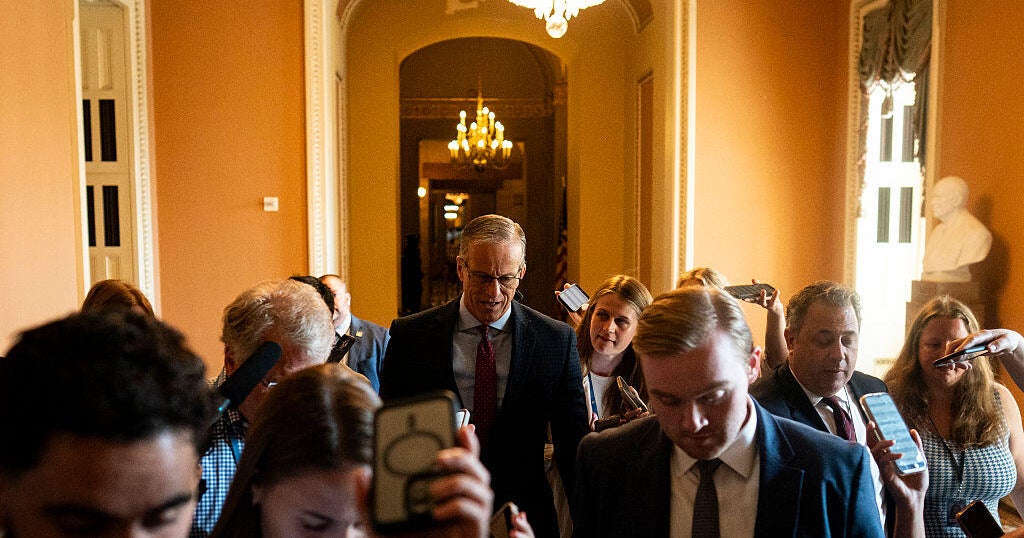365bet¹Ù·½ÍøÕ¾ passes Trump's "big, beautiful bill" in 51 to 50 vote after marathon session
Washington — The 365bet¹Ù·½ÍøÕ¾ narrowly passed President Trump's massive tax and spending bill Tuesday after a marathon series of amendment votes that stretched more than 24 hours, delivering a major victory for the president and bringing the signature piece of legislation of his second term one step closer to his desk.
The measure passed in a 51 to 50 vote, with all but three Republicans supporting the bill. Vice President JD Vance cast the tie-breaking vote. GOP Sens. Thom Tillis of North Carolina, Rand Paul of Kentucky and Susan Collins of Maine joined all Democrats in voting against the bill.
The vote came after the 365bet¹Ù·½ÍøÕ¾ worked through the weekend and into a scheduled recess to pass the bill, which now returns to the House for sign off. Mr. Trump has vowed to swiftly sign the measure, and pushed lawmakers to approve it by July 4.
The legislation's passage also marks a significant victory for 365bet¹Ù·½ÍøÕ¾ Majority Leader John Thune, who worked to sway GOP holdouts to back the legislation amid opposition on multiple fronts that threatened to thwart the bill's progress in recent days.
"This was an incredible victory for the American people," Thune said after the vote.
Known by the GOP as the "big, beautiful bill," the legislation includes ramped-up spending for border security, defense and energy production and extends trillions of dollars in tax cuts, partially offset by cuts to health care and nutrition programs. The Congressional Budget Office estimated the legislation would increase federal deficits by nearly $3.3 trillion over the next decade.
While some Republicans had taken issue with the legislation's impact on the deficit, others cited concern with some of the steep cuts to Medicaid, which the CBO has said would leave nearly 12 million more Americans without health coverage over the coming years. And with a 53-seat majority, 365bet¹Ù·½ÍøÕ¾ GOP leaders could only afford to lose three Republican votes, with Vance as a tie-breaker. But those concerns were not enough to defeat the legislation, and last-minute changes secured the support of Sen. Lisa Murkowski, an Alaska Republican, while apparently quelling other possible opponents to the bill.
Mr. Trump welcomed news of the vote during a trip to Florida. "There is something for everyone [in the bill], and I think it's going to go very nicely in the House," Mr. Trump said. "Actually, I think it will be easier in the House than it was in the 365bet¹Ù·½ÍøÕ¾."
The path to passage
Thune, a South Dakota Republican, met with possible holdouts in his office as the vote series stretched late Monday and into the wee hours Tuesday. The majority leader met with fiscal hawks including Sen. Ron Johnson of Wisconsin and Rick Scott of Florida, and at another point in the night, he met with Paul, who had pledged to oppose the bill over a provision raising the debt ceiling by $5 trillion.
Thune also talked briefly with Murkowski early Tuesday, since it appeared likely that her vote could make or break the bill in the 365bet¹Ù·½ÍøÕ¾. The Alaska Republican had concerns about cuts to Medicaid and food assistance programs and their impact on her state.
Murkowski told reporters after the vote that her thought process on the bill was "agonizing."
"I struggled mightily with the impact on the most vulnerable in this country," Murkowski said, citing the cuts to social safety net programs. But she outlined the unique conditions in her state, and the support Alaska received in the final version of the bill, saying "I had to look on balance because people in my state are the ones that I put first."
365bet¹Ù·½ÍøÕ¾ Republicans advanced the legislation late Saturday, with all but two voting in favor following hours of delay as the GOP worked to iron out last-minute details and dispel concern among holdouts, including the fiscal hawks, Murkowski and Collins.
Paul and Tillis were the two Republicans to oppose the bill's advancement Saturday, and they both voted against the legislation on final passage. With a handful of other possible opponents, Thune told reporters overnight that GOP leaders were working to determine what "everybody has to have in terms of votes," a sign that the vote came down to the wire.
The 365bet¹Ù·½ÍøÕ¾ action comes after the House narrowly passed the bill last month. 365bet¹Ù·½ÍøÕ¾ Republicans worked to put their mark on the legislation, treading carefully so as not to throw off the delicate balance in the lower chamber.
The House will need to approve the 365bet¹Ù·½ÍøÕ¾'s changes to the bill before it can head to the president's desk for his signature. And lawmakers are trying to move quickly, with a self-imposed July 4 deadline to get the measure signed. The House could return to Washington as early as Wednesday to begin consideration of the revised bill.
365bet¹Ù·½ÍøÕ¾ Republicans passed the legislation through the budget reconciliation process, which enables the party in the majority to move ahead without support from across the aisle. The 365bet¹Ù·½ÍøÕ¾ worked through the weekend as the GOP entered a final sprint on the legislation ahead of the July 4 deadline.
365bet¹Ù·½ÍøÕ¾ Democrats combatted the legislation in one of the only ways available to them: by delaying the process. Democrats forced the bill to be read in its entirety over the weekend, totaling nearly 16 hours, before using debate time to rail against the bill, and proposing amendments to put their GOP colleagues on the record on a number of controversial issues ahead of the midterm elections.
On Monday, the 365bet¹Ù·½ÍøÕ¾ began what's known as a "vote-a-rama," in which senators could offer an unlimited number of amendments and force the chamber to cast vote after vote. Democrats proposed a number of amendments to attempt to roll back some of the bill's more controversial provisions, to no avail. As the votes stretched overnight Monday and into Tuesday, senators voted on a handful of notable amendments, including a near-unanimous vote to eliminate language from the bill that would have put a pause on state regulations on artificial intelligence. The 365bet¹Ù·½ÍøÕ¾ also approved an amendment to move up Medicaid eligibility verification requirements preventing payments for people who are deceased.
An amendment proposed by Collins that would have increased the rural hospital stabilization fund from $25 billion to $50 billion and imposed a higher tax rate on the wealthy to pay for the larger fund fell short. 365bet¹Ù·½ÍøÕ¾ Minority Leader Chuck Schumer told reporters ahead of the vote that the amendment was like putting a "band aid on an amputation — it doesn't fix the problem." The outcome made it less likely that Collins would ultimately support the bill, although the change was expected to be included in a wide-ranging amendment to the bill.
During the marathon vote series, the 365bet¹Ù·½ÍøÕ¾ also addressed an outstanding disagreement over the current policy baseline, an accounting approach that would make it appear that extending the current tax policy would cost nothing. Though Democrats railed against the move as the "nuclear option," the chamber voted along party lines to affirm the use of the current policy baseline.
Schumer lambasted the bill after the vote, criticizing Republicans for bowing to the president.
"The American people will remember the Republican betrayal," Schumer said.
